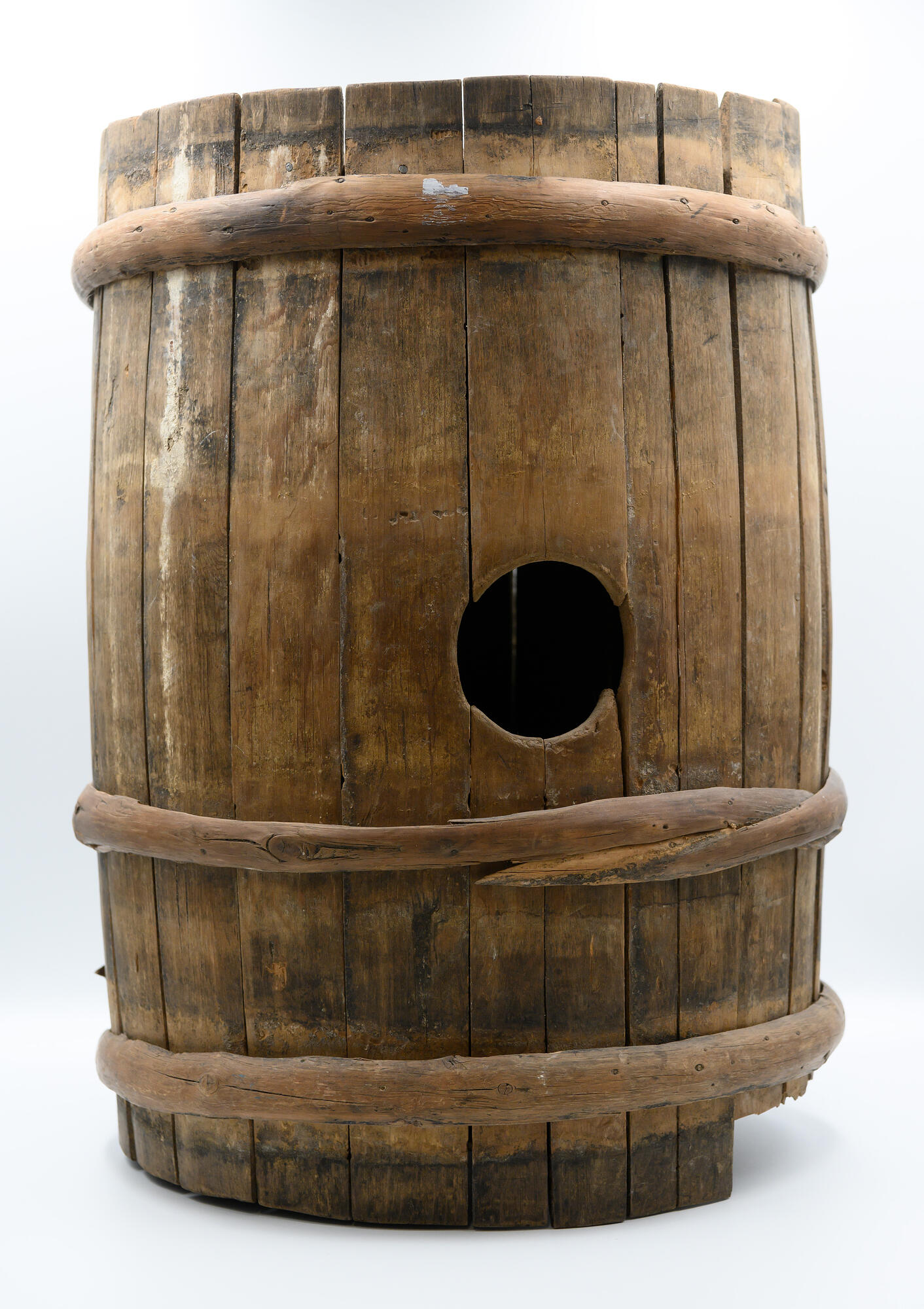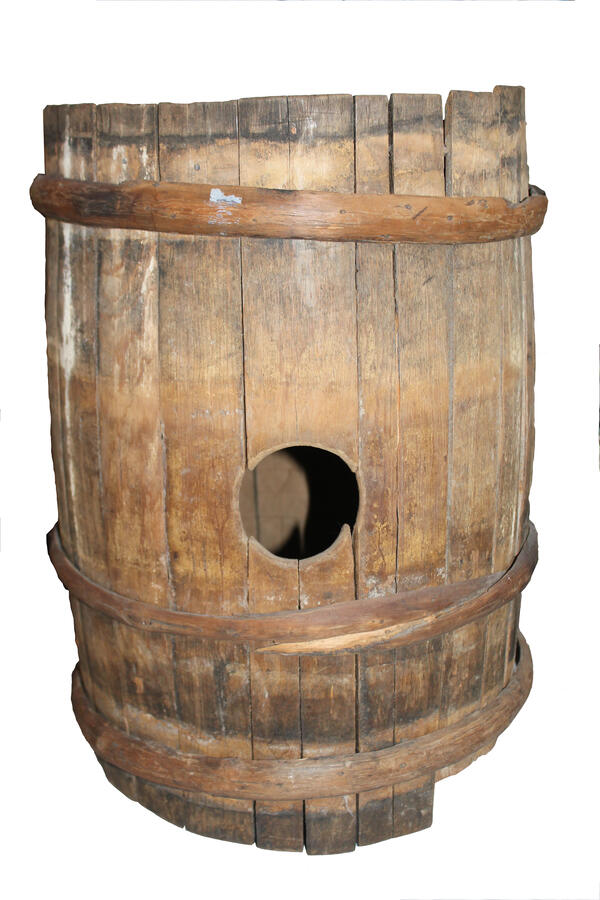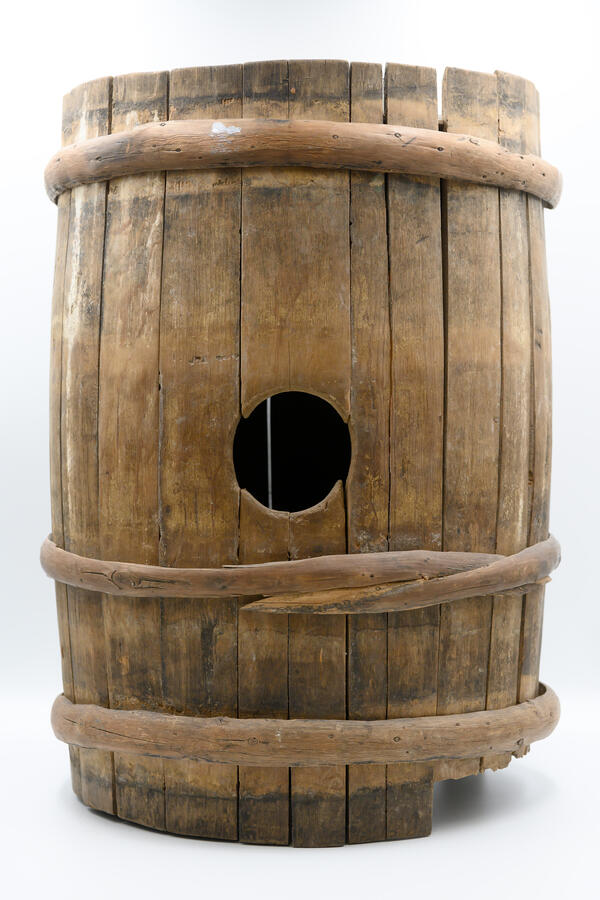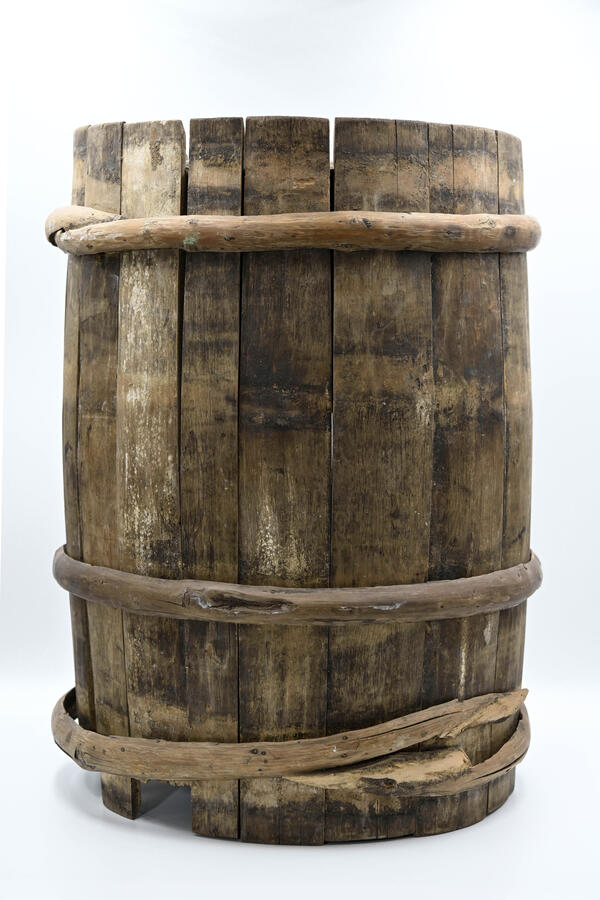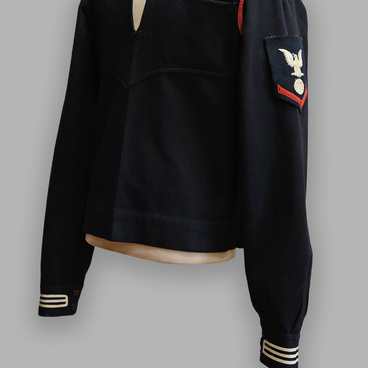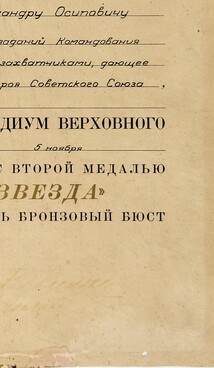A barrel for drinking water made in the late 19th — early 20th centuries in Pomorye is presented in the section “Life and Crafts of the Pomors” of the Polyarny Museum of History and Local Lore.
Similar barrels were used in fisheries by residents of the village of Kuzreka of the Tersk district. In the Middle Ages, barrels were a marketable commodity. They were used to store everything — from liquids to dry goods. A craftsman engaged in the creation of wooden barrels, as well as other containers made of various breeds of wood was called a cooper or “bondar” (from the Old Slavonic “bodnya” — tub, barrel). Coopers made dishes from staves — long trapezoidal or rounded planks of wood. Often coopers made special double-bottomed (with two headers) barrels with a round hole on either of the bottoms or on the bilge of the barrel (bung hole). Such barrels were used for storing and transporting drinking water, kvas, birch and maple juice along with other beverages. They were always placed horizontally, and to prevent the contents from spilling out, the bung hole was sealed with a plug.
The choice of wood for the future barrel was determined by what was going to be stored in it. For milk, honey and caviar, barrels were made of linden. For drinking water — from spruce or pine logs. The wood was specially chosen so that the water “did not suffocate” and retained its freshness. Headers were made of non-standard planks and hoops were made of spruce branches. Headers were made by a more experienced cooper — a “kupor”. Coopers began learning their craft at a young age, they were engaged in it all winter and in their free time between fishing.
Cooperage has received the greatest development in the villages along the shores of Kandalaksha Bay of the White Sea. Coopers were well-respected members of local communities. Barrels were made for salting herring, storing wine and gunpowder. Small barrels from 5 to 120 liters were the most commonly used in the peasant household. Barrels were also used for doing laundry.
The Pomors used the presented
barrel to store drinking water at camps and fishing boats from the late 19th to the early 20thcentury.
This barrel was kept in the house of Valery Balanin, a resident of the village
of Kuzreki who inherited it from his Pomor parents.
